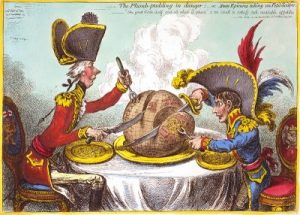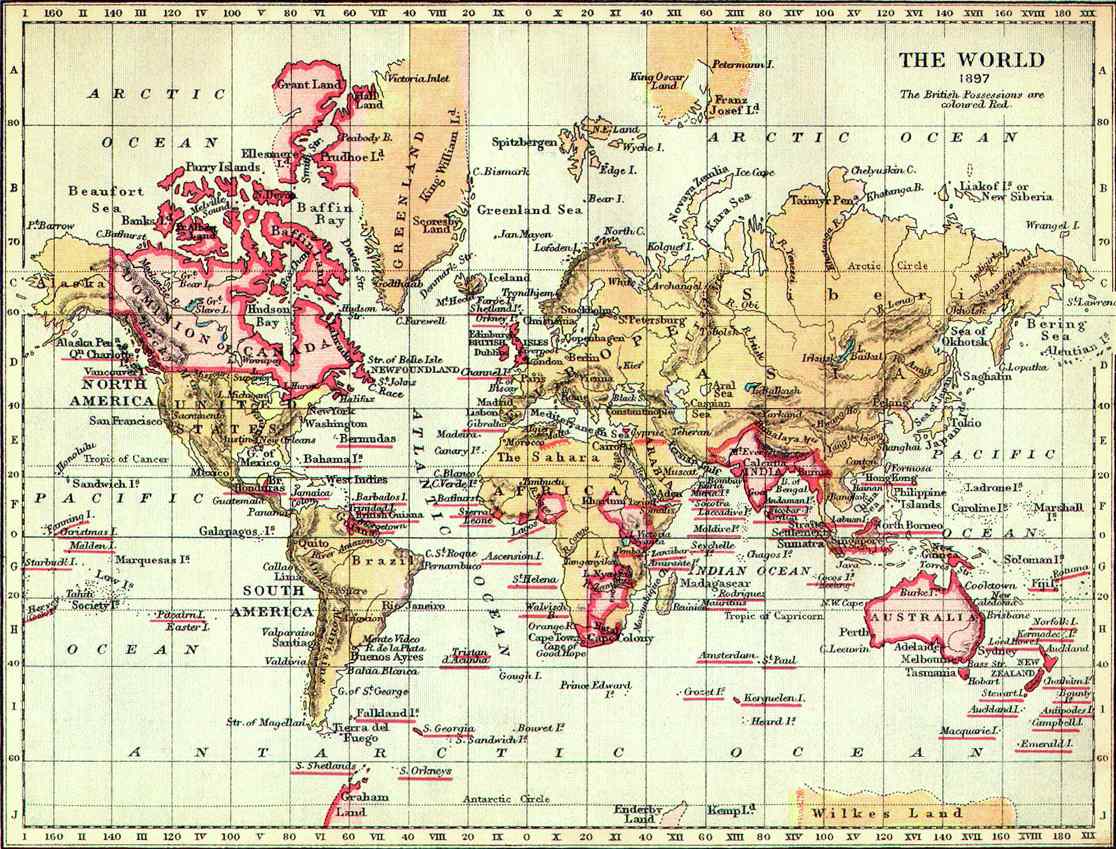The Centre for the Study of Global Cultures and Encounters highlights the dynamicity of the history of colonial worlds; it uses history as a creative tool to understand the past as well as the contemporary realities of Asian, African and Latin American countries and, in the process, seek to refine the craft of writing history itself.

The Plumb-pudding in danger, or, State Epicures taking un petit souper – James Gillray
Over the course of the past half a century, the discipline of history as a whole has been redefined and revolutionized by the efforts to understand the past of colonial societies in their own terms has proceeded alongside the refinement of conventional historical methodologies and the establishment of profitable interdisciplinary exchanges.
In these societies and cultures beyond Europe and northern America, history remains uniquely relevant and the colonial past frequently overlaps into contemporary times. In the renaming of cities in South Asia, in the plantations of Africa, Indonesia, and the West Indies, in the mines of South America, in territorial disputes in Africa, in religious riots in India, in labour migrations across Africa, in social and political upheavals in the Arab world, in poverty, disease and death, in public culture, in the myriad conflicts between modernity and tradition the past is constantly invoked and contested. The Centre for the History of Colonialisms highlights the dynamicity of the history of colonial worlds and its everyday occurrences.
Finally, the rise of global and transnational history over the past few years is also stoking the fire of interest in the history of colonialism. The members of the centre through their research and their teaching engage with this thriving new scholarship espousing its ambition to overcome parochialism and artificial borders while defending the irreducible diversity of history’s purposes and methodologies. The history we promote is inherently comparative, with different colonial dynamics, structures and trajectories being brought into constant dialogue with one another.
